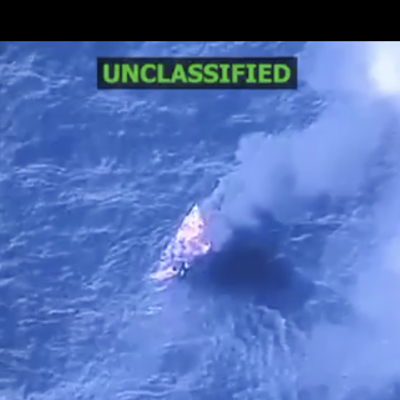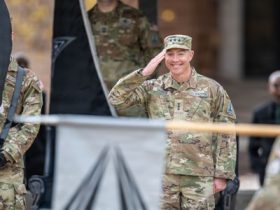National-security-law experts worry that guidance from the military’s top legal minds is being ignored by the Trump administration, which is pushing troops into new legal territory with deployments to U.S. cities and strikes on alleged drug-runners abroad.
“One of the things I fear might be happening here is that the judge advocates in this instance may be providing proper means and methods advice, but I sense that the administration has gone to the Department of Justice and asked the Office of Legal Counsel to override whatever advice is being given by the judge advocates,” James Baker, a law professor at Syracuse University and former chief judge of the U.S. Court of Appeals for the Armed Forces, said Wednesday during a Center for a New American Security event.
Baker and James McPherson, a retired rear admiral and former Navy JAG who served as Army undersecretary during Trump’s first term, told attendees that the military’s lawyers have historically been crucial for making sound decisions during operations. But, in February, Defense Secretary Pete Hegseth fired the Air Force, Army and Navy’s top judge advocates general. Hegseth told reporters their dismissals were necessary to clear “roadblocks to orders that are given by a commander in chief.”
Baker and McPherson’s concerns follow a new report that a classified legal opinion from the Department of Justice has justified continued strikes on alleged cartel members.
McPherson said that if he was put in the difficult position of the JAG advising the commander on the cartel strikes, he would take note of everything and offer that officer a way out of the situation, too.
“If I felt that he was being given advice that was not sound and not legal, I would document that myself,” McPherson said, adding he’d also tell that commander he’d draft legal guidance to his superiors “‘that will protect you in the future if some of this comes back to haunt you.’”
In the early hours of his second term, Trump signed an executive order designating certain cartels as terrorist organizations. On Oct. 2, the administration sent a memo to Congress declaring that the U.S. is in an “armed conflict” with the groups.
Baker poked holes in that logic. He said the labels alone don’t seem to be enough to support the militarized action.
“The problem here seems to be reverse engineering,” Baker said. “There’s no armed group and ongoing, consistent, violent hostilities. I’m not seeing it.”
In addition to the cartel strikes, a flurry of legal challenges have been filed in response to President Trump’s deployments of National Guard troops to Chicago, Portland, Oregon, and Memphis. Similar deployments earlier this year to Los Angeles and Washington, D.C., are also the subjects of lawsuits.
McPherson said the administration’s legal justifications for the LA deployment were divorced from reality.
“Well, those facts were not supported by the evidence, ladies and gentlemen. Just simply was not,” he said. “And as a result, the facts that the administration articulated were facts that they found on Truth Social, facts they found in podcasts, facts they found not in evidence on the ground.”
Judge advocates general often provide direct guidance to a commander, steering them between the guardrails in place for military operations. An August survey by the University of Massachusetts Amherst’s Human Security Lab reported that 4 out of 5 service members surveyed understood the Uniform Code of Military Justice’s mandate to disobey unlawful orders.
Baker said commanders should have the courage to stand up to illegal orders.
“If the JAG advised it was unlawful, the commander owns it now,” Baker said. “So, if you think there’s something that is unlawful, you need to say so. And that’s a point when you put your stars on the table.”
Read the full article here








Leave a Reply